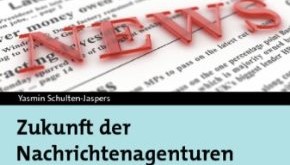European law protecting the right of journalists to have confidential sources is being undermined by police in Britain, according to the UK’s National Union of Journalists (NUJ). The NUJ has accused police of spying on reporters by invoking anti-terror laws to access their private phone records.
The union said recent police use of the Regulation of Investigatory Powers Act (RIPA) against journalists represented a threat to press freedom and civil liberties.
Lord Falconer, a former Lord Chancellor, also criticized police. He said investigating officers had been wrong to authorize themselves to use the law and should have sought a legal judgment before obtaining the phone records of at least three national newspaper journalists.
Lord Falconer was referring to two recent, high-profile cases in which police had ordered phone companies to hand over reporters’ phone records.
The first, known as ‘Plebgate’, centred on a row between a former cabinet minister and police at the gates of Downing Street, in London. The other case concerned a speeding ticket fraud, involving Chris Huhne, a former MP.
The Sun newspaper has made an official complaint to the Investigatory Powers Tribunal. It has asked for a public review into whether police abused their power when they ordered Vodaphone to release the phone records of the newspaper’s political editor, Tom Newton Dunn, during the Plebgate investigation.
In a leader, the paper said the actions of the police amounted to an “assault on a free press”. The paper commented: “A free press is fundamental to all of our other freedoms. And to have a free press reporters need to be able to protect the identity of their sources.”
Under European law police would have to apply to a court for permission to access private phone records, but under RIPA, the police only need approval from a senior officer.
Media lawyers and press freedom campaigners say they are concerned because the use of RIPA is not transparent and they cannot know if it is being used to compromise confidential sources. The NUJ said that the police had used RIPA secretively and may have accessed the phone records of many more journalists than they have admitted publicly.
Gavin Miller QC, who represented the owner of the Mail on Sunday, Associated Newspapers, in the Chris Huhne speeding ticket case, said that RIPA had been enacted in 2000 to deal with terrorism. Police have admitted that they obtained the phone records of two senior journalists who worked on the case for the Mail on Sunday.
A police spokesman defended the use of RIPA in the Plebgate and Chris Huhne cases saying there were sometimes “higher needs for justice” than protecting confidential sources. However, the spokesman conceded that there may be a need to change the basis on which the police obtained information from or about journalists.
Sir Ian Blair, a former head of the London Metropolitan police force, said that RIPA was never intended to be used to gain information about journalists. Boris Johnson, London’s Mayor, has also called for the law to be re-written so that in the future, police are required to seek a judicial review before using it against reporters.
The UK Press Gazette, the journalists’ trade publication which is running a Save Our Sources campaign has applied to police forces all over the country, requesting that they detail their use of RIPA against journalists. It said that 25 forces have so far refused to respond to its freedom of information requests: 17 forces refused on the grounds of cost, but nine said disclosure would risk undermining “national security”.
This article is available on EJO also in Italian.
pic credit: Loz Pycock/Flikr










































